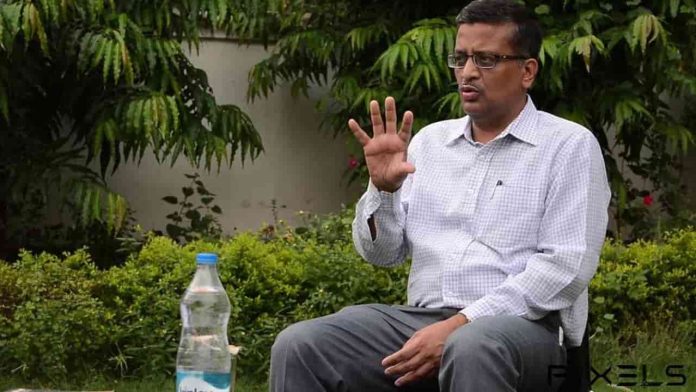The IAS officer has had another face-off with the Haryana government, this time over his appraisal report. However, the apex court has sided with the state, leading to a setback to the honest officer
By Sanjay Raman Sinha
As officer Ashok Khemka has made headlines again, this time in a legal duel with the Haryana government. The matter relates to the performance appraisal report (PAR) made by then Haryana chief minister ML Khattar. Khemka had raised objection to the grading given by Khattar and had moved Central Administrative Tribunal (CAT) and then the Punjab and Haryana High Court. The Court had ordered that the remarks and grading done by the chief minister be expunged and said that the grading of 9.92 given by the health minister as the reviewing authority be restored. This order was challenged by the Haryana government at the Supreme Court where the order of the High Court was rescinded.
In 2017, Khemka, a 1991 IAS officer of the rank of Principal Secretary, Government of Haryana, submitted his self-appraisal in the annual performance appraisal report under the PAR Rules. The chief secretary awarded an overall grade of 8.22. Subsequently, a divergent view was taken by the Reviewing Authority, the health minister of Haryana, who upgraded Khemka to an overall grade of 9.92. However, on December 31, 2017, the Accepting Authority, Chief Minister ML Khattar rejected the gradings and downgraded Khemka to an overall grade of 9 in the PAR. Khemka filed an internal complaint for restoration of the grade and remarks which were not heeded. Thereafter, he moved CAT. CAT played by the rulebook and refused respite to Khemka.
The CAT order said that the “limit fixed for writing the appraisal report by various authorities, in the Schedule 2, is the minimum or ideal period within which the remarks are required to be made. Further, if the PAR is not recorded by 31st December of the year in which the financial year ended, no remarks shall be recorded thereafter. Appraisal report of the applicant by the Accepting Authority was written on 31.12.2017 and was written well within the limit prescribed under the relevant Rule 5(1) and Applicant appears to have overlooked the applicability of these two rules while presenting his case to the Bench for expunging the remarks and overall grade recorded by the Accepting Authority”.
Khemka challenged the CAT order in the Punjab and Haryana High Court, which set it aside, observing that the Accepting Authority had failed to appreciate the various practical constraints faced by Khemka, “an upright, intelligent and honest officer, in the discharge of his duties”, and that the Reviewing Authority revised the Reporting Authority’s overall grading in a transparent, fair and reasoned manner. Accordingly, the PAR was restored by the High Court.
The Haryana government challenged the High Court order in the Supreme Court, where the bench came down heavily on the High Court. The bench decried the intrusion of the High Court. The bench scathingly said: “Accordingly, it is our opinion that the High Court entered into a specialised domain i.e., evaluating the competency of an IAS officer by way of contrasting and comparing the remarks and overall grades awarded without the requisite domain expertise and administrative experience to conduct such an evaluation. The process of evaluation of an IAS officer requires a depth of expertise, rigorous and robust understanding of the evaluation matrix coupled with nuanced understanding of the proficiency required to be at the forefront of the bureaucracy. This administrative oversight ought to have been left to the executive on account of it possessing the requisite expertise and mandate for the said task. The High Court ought not to have ventured into the said domain particularly when the Accepting Authority is yet to pronounce its decision qua the Underlying Representation. We are of the opinion that the learned Division Bench of the High Court erred in law.”
Khemka is one of the most transferred IAS officers in the country. A Haryana cadre officer, he has taken the government by the horns on umpteen occasions and faced punishment postings. He carries his transfers and face-offs with stoic resignation and goes on with his crusade as usual.
Wikipedia eugolises Khemka: “As of January 2023, he has been transferred 55 times in 30 years by state governments after he exposed corruption in the departments he was posted in. He is a whistleblower of several scams that took place under Bhupinder Hooda’s regime, including the Robert Vadra DLF land grab scam, Sonepat-Kharkhoda IMT land scam case, and Garhi Sampla Uddar Gagan land scam. Ashok Khemka is Haryana’s second-most transferred bureaucrat after another retired IAS officer, Pradeep Kasni, who was transferred 71 times in 35 years.”
After being the nemesis of the Hooda-led Congress government, he faced the brunt of shunting in the Khattar-led BJP dispensation as well. Known to challenge the high and mighty, Khemka has been instrumental in highlighting the humongous land scam in and around Gurgaon in which even Robert Vadra wasn’t spared.
Retributive action against central services has been a cause of concern for the officer fraternity. In 2013, a representation was made to the centre by central service officers and subsequently, the centre had promised to review the service rules to provide immunity to IAS and IPS officers from arbitrary suspensions and unjust disciplinary actions by state governments.
As per rules, state governments are authorised to take action against an All India Services officer working under their jurisdiction. This has been the license which has prompted various state governments to initiate arbitrary disciplinary actions against IAS officers to make them toe the line. However, intrepid officers like Khemka have always cocked a snook at the powers that be and furrowed a lonely trail.


